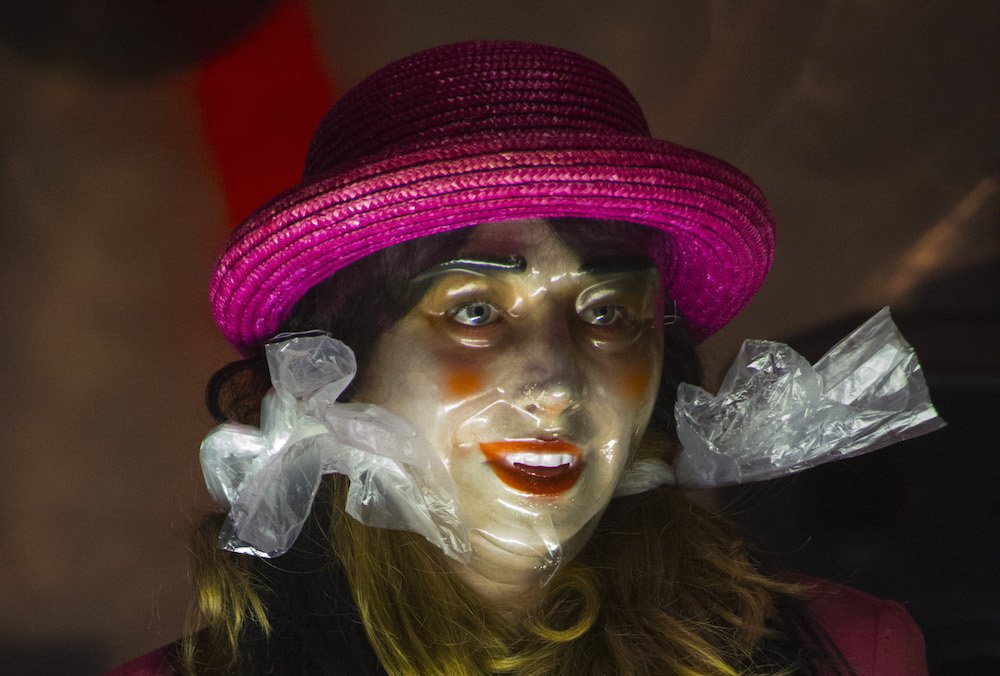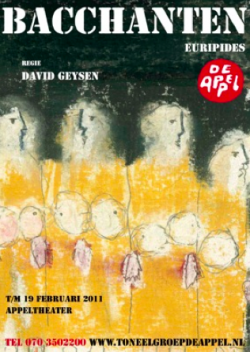
|

|
 |
|

 Edited with introduction and commentary by E.R. Dodds
Edited with introduction and commentary by E.R. Dodds Voor het maken van de vertaling (die aan de basis ligt van de bewerking van David Geysen) ben ik (red. dramaturg/vertaler Alain Pringels) bijzonder schatplichtig aan de commentaren van E.R. Dodds, een Iers classicus (1893-1973). Zijn studie van Bacchanten, gepubliceerd in 1944, geldt nog steeds als één van de meest erudiete analyses van deze Griekse tragedie. Wie zich wil verdiepen in dit stuk, moet Dodds raadplegen.
‘Unlike most Greek tragedies the Bacchae is a play about an historical event - the introduction into Hellas of a new religion. When Euripides wrote, the event lay in the far past, and the memory of it survived only in mythical form. (...) If we are to understand this play, we must first know something about Dionysiac religion - the intention of certain of its rites, the meaning of certain of its myths, and the shapes it had assumed in Euripides' time." (page ix)
‘These legends are evidently related to the Theban myth of the madness of Cadmus' three daughters and the death of Pentheus at their hands. Many writers find in them simply a reflection of historical events - a tradition of successive local conflicts between the fanatical adherents of the new religion and the representatives of law and order, the heads of the great families. That such conflicts occurred is probable in itself; that the infection of mountain-dancing should lay sudden hold of unbelievers is psychologically intelligible and has, as we have seen, its parallels in other cultures; that the god should make his first converts among the women is natural in view of the narrow and repressed lives which Greek women commonly led.' (page xxiii)
E. R. Dodds, Euripides Bacchae, Oxford Press, 1944